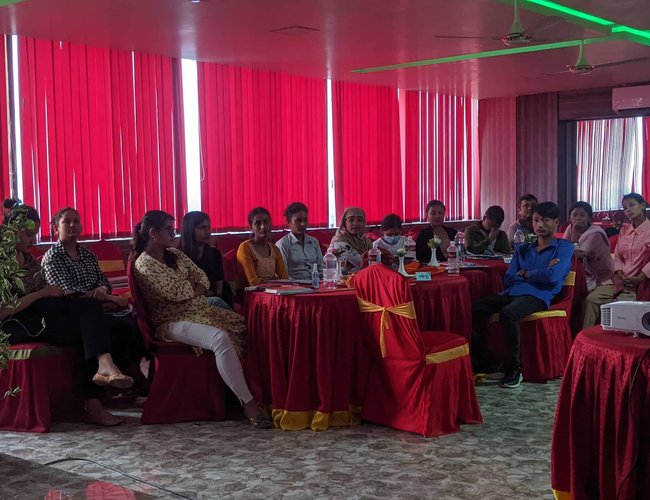
Youth are a significant group in the world. They have unique characteristics with immense potential and influence on various aspects of society. They possess a natural curiosity and expression with an ability and willingness to challenge the status quo and drive societal change.
Despite their vibrant energy and enthusiasm, youth are also among the most vulnerable groups when it comes to mental health issues. The challenges, pressures, and peer-influences they face during their transitional period of their lives can significantly impact their mental well-being and decision making. Some of the commonly observed mental health challenges among youth are anxiety disorders, mood disorders, behavior disorders, depression, attentive-deficit, eating disorders, substance abuse, feelings of isolation, self-harm and suicidal thoughts, post-traumatic stress disorders, etc.
Adolescent and youth undergo biological and hormonal changes (physical and emotional), family dynamics (home environment and conflict), peer pressure (influences and relationship), academic stress (college applications, course work and exams), and identity formation (values, beliefs and personal identity). According to the World Health Organization, it is estimated that approximately 25% of individuals worldwide will experience one or more mental or behavioral disorders at some point in their lives.
Mental health issues are prevalent in both rural and urban areas, although the specific challenges and resources may vary. Rural areas generally experience higher rates of poverty, limited job opportunities, stigma and limited access to healthcare, all of which can impact mental health. On the other hand, the fast-paced urban lifestyle with increased competition and disparities contribute to anxiety and depression.
Mental health disorders are common and can affect people of all ages, genders, and socio-economic backgrounds. We need to be curious with people, rather than judgmental to understand individuals on an individual level, recognizing their unique complexities, and avoiding generalizations. It says that sometimes we need to talk to a 5-year-old and an 85-year-old to understand life again.
Life is a combination of ups and downs for people of all ages including youth. Taking life too seriously can contribute to increased stress level. Finding a balance between responsibility, self-care and a sense of humor is crucial for youth for maintaining mental well-being and managing stress effectively.
Managing stress is a personal journey, and what works for one person may not work for another. While not all mental health issues are prevented, they are treatable through counselling and medication. While speaking with young people of different age groups and backgrounds, they said that making lifestyle changes and self-care can have a significant impact on mental health. Moreover, engaging in regular physical activity, maintaining a balanced diet, getting sufficient sleep, and practicing stress reduction techniques, such as meditation or yoga, can contribute to overall well-being and support mental health.
Mental health begins in childhood and plays a decisive role in shaping an individual's overall well-being throughout their life. It is crucial to create supportive environments in homes, schools, and communities to adapting to changes and promoting positive mental health in childhood and teenage years. Getting a good mentor can also be extremely beneficial for youth in various aspects of their lives where they can discuss concerns without fear of judgement. Further, sharing struggles, seeking advice, and connecting with peers can provide a sense of belonging and support during ups and downs.
Be kind to yourself and prioritize self-care, avoid negative self-talk and celebrate small wins!
Dr. Prabin Manandhar is an expert in international development. Currently, he is working as the Country Director of Helvetas Swiss Intercooperation Nepal. He is the Former Chair of the Association of International NGOs in Nepal (AIN). He is also a visiting faculty at Kathmandu University and the Tribhuvan University Institute of Crisis Management Studies. The opinions are his own and not that of his employer. He can be reached at prabin.manandhar11@gmail.com
- Reclaiming Nepal’s Budget From Hidden Hands
- Jun 07, 2025
- Redefining Regional Cooperation: How SAARC can evolve like ASEAN
- May 11, 2025
- From Nepal to Myanmar: Navigating Earthquake Response Lessons
- Apr 13, 2025
- World Humanitarian Day 2024: Committing to Peace and Accountability
- Aug 19, 2024
- Nepal Investment Summit: Unlocking Economic Potentials For Growth And Development
- Apr 28, 2024













